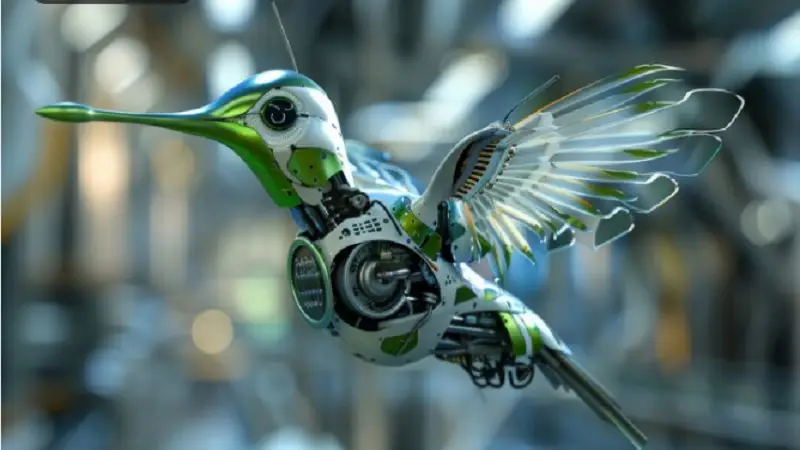
Introduction to the Revolution in Recycling
Recycling plays a crucial role in managing waste, conserving resources, and protecting the environment. However, the process has traditionally been labor-intensive and prone to errors, with human workers manually sorting recyclable materials from waste. This not only increases costs but also results in contamination, reducing the quality and value of recyclables.
To address these challenges, companies like Bollegraaf are incorporating advanced AI systems into recycling operations. By leveraging AI-powered sorting systems, they can increase the accuracy, speed, and efficiency of sorting materials, ensuring cleaner streams of recyclables and improving overall waste management processes.
Bollegraaf: A Leader in Waste Sorting Solutions
Bollegraaf is an established leader in designing and manufacturing waste sorting equipment and recycling systems. Known for their commitment to innovation and sustainability, the company provides state-of-the-art solutions that help industries around the world optimize their recycling operations.
Bollegraaf’s systems are used in Material Recovery Facilities (MRFs), where they process a wide range of waste materials, including paper, plastic, metal, and glass. The integration of artificial intelligence into these systems allows for a more automated and effective sorting process, which is essential as the complexity of waste streams continues to grow.
The Role of Greyparrot in AI-Powered Recycling
Greyparrot, an AI company specializing in waste recognition and sorting, is at the forefront of transforming recycling operations. By using computer vision and machine learning algorithms, Greyparrot’s AI systems can analyze waste in real time, identifying and categorizing materials more accurately than humans.
Key Features of Greyparrot’s AI Technology
- Real-Time Waste Recognition: Greyparrot’s system can scan conveyor belts in recycling facilities and instantly identify the type of material passing through. Whether it’s plastic, metal, glass, or paper, the system can classify materials with remarkable precision.
- High-Accuracy Sorting: By leveraging deep learning models trained on large datasets, Greyparrot’s technology ensures that materials are sorted more accurately than traditional systems. This reduces contamination and improves the purity of recyclables, which is essential for their subsequent processing and reuse.
- Automated Insights: Greyparrot’s AI system not only sorts waste but also provides operators with valuable data about the waste stream. It can track the types and quantities of materials entering the facility, offering actionable insights for better decision-making and resource optimization.
- Reduced Labor Costs: The automated nature of Greyparrot’s system means that fewer human workers are required to sort materials manually. This not only reduces labor costs but also minimizes the risk of injuries in hazardous environments.
Airivero: Enhancing Efficiency in Waste Sorting with AI
Airivero, another key player in the field of AI-driven waste sorting, has developed an advanced system designed to optimize the performance of recycling operations. Airivero’s technology enhances the capabilities of sorting machines by enabling them to make faster, more accurate decisions about which materials should be separated.
Features of Airivero’s AI System
- Advanced Material Detection: Airivero’s AI platform uses cutting-edge sensors and machine learning models to detect various materials, including hard-to-sort items like composites, multi-layered packaging, and textiles. This capability ensures that even complex waste streams are processed efficiently.
- Optimized Conveyor System: The integration of AI with Airivero’s conveyor system allows for smoother material flow, reducing bottlenecks and delays in the sorting process. The AI system continuously adjusts the speed and direction of conveyors to maintain an optimal throughput.
- Predictive Maintenance: One of the standout features of Airivero’s technology is its ability to predict when machines will require maintenance or are at risk of failure. By analyzing real-time performance data, the AI can alert operators before a system breakdown occurs, reducing downtime and maintenance costs.
- Energy Efficiency: Airivero’s AI also plays a significant role in optimizing energy consumption in recycling facilities. By monitoring the efficiency of equipment and adjusting settings in real-time, Airivero’s system ensures that energy is used as efficiently as possible, which lowers operational costs and supports sustainability efforts.
Practical Steps for Implementing Bollegraaf AI Greyparrot Airivero in Recycling Operations
For recycling facilities looking to integrate Bollegraaf AI Greyparrot Airivero systems into their operations, there are several practical steps to consider. These steps ensure that the technology is implemented effectively and that the facility realizes the full potential of AI-powered waste sorting.
1. Assessing Your Facility’s Needs
Before implementing AI-powered sorting technology, it’s essential to conduct a thorough assessment of your recycling facility’s current operations. Evaluate your waste streams, sorting processes, and available equipment. Identify the pain points in your operation, such as inefficiencies, contamination issues, or labor shortages, that AI can address.
2. Choosing the Right AI Technology
Once you understand your facility’s needs, you can choose the appropriate AI solutions. For example, if your facility processes mixed recyclables and needs accurate material detection, Greyparrot’s AI system may be the best choice. If energy efficiency and predictive maintenance are priorities, Airivero’s technology could be a good fit. Bollegraaf’s systems are flexible and can integrate with both solutions to create a seamless recycling process.
3. Integration with Existing Equipment
The next step is integrating the AI system with your existing recycling equipment. Bollegraaf’s systems are designed to work with various types of sorting machinery, including conveyor belts, balers, and shredders. Collaborate with your technology provider to ensure a smooth integration process that minimizes downtime and ensures compatibility.
4. Staff Training and Adaptation
Even though AI systems are designed to automate much of the sorting process, staff training is still essential. Operators must understand how to use the AI system, monitor its performance, and make adjustments when needed. Training programs should focus on both the technical aspects of the system and the strategic insights that the AI provides.
5. Continuous Monitoring and Optimization
Once the AI-powered sorting system is up and running, continuous monitoring is essential to ensure it operates at peak efficiency. AI systems like those from Greyparrot and Airivero can generate real-time data on material flows, system performance, and potential issues. Use this data to make adjustments and improve the sorting process over time.
6. Sustainability and Reporting
Finally, AI systems enable recycling facilities to track and report on their sustainability efforts more effectively. The systems generate data on the amount and type of waste processed, the efficiency of the sorting process, and the impact on energy consumption. This information is invaluable for meeting sustainability goals and reporting to stakeholders.
Benefits of Bollegraaf AI Greyparrot Airivero Technology
- Increased Efficiency: By automating the sorting process, AI reduces the time required to sort materials, allowing facilities to process more waste in less time.
- Improved Accuracy: AI-powered systems offer superior accuracy in identifying and sorting materials, leading to cleaner and more valuable recyclables.
- Cost Savings: Reducing labor costs, improving operational efficiency, and minimizing downtime all contribute to significant cost savings for recycling facilities.
- Environmental Impact: By optimizing recycling processes and increasing the amount of material that is properly sorted and recycled, these AI systems help reduce waste sent to landfills and support sustainability efforts.
Conclusion
The integration of Bollegraaf AI Greyparrot Airivero technologies is a game-changer for the recycling industry. By automating and optimizing sorting processes, these AI-powered systems are enhancing the efficiency, accuracy, and sustainability of waste management operations. For recycling facilities looking to stay ahead of the curve, adopting these technologies offers a practical and impactful way to improve operations and contribute to a cleaner, more sustainable planet. With continuous innovation and the growing capabilities of AI, the future of recycling looks brighter than ever.
See More:https://stylishbusiness.org/








